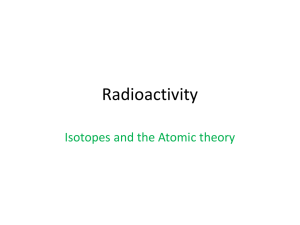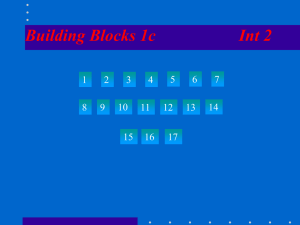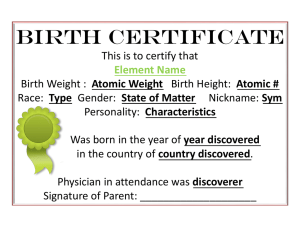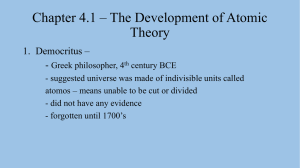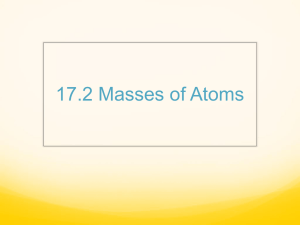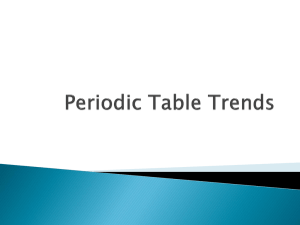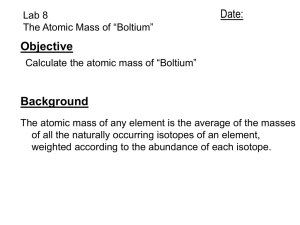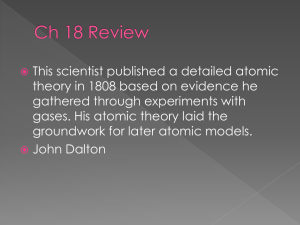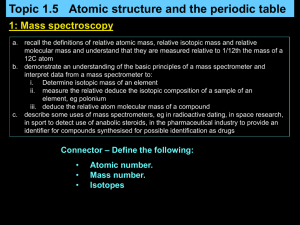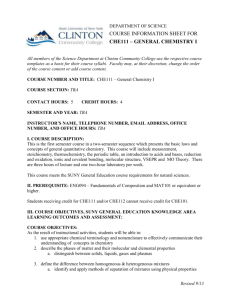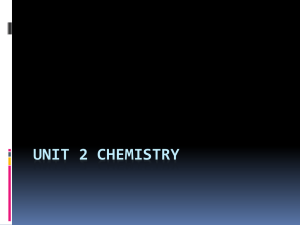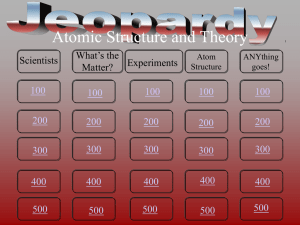Chapter Two - Alfred State College intranet site
advertisement
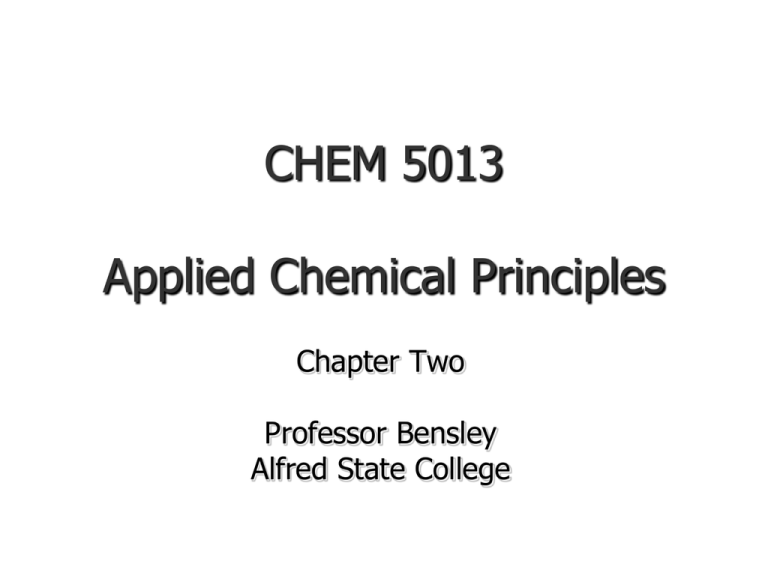
CHEM 5013 Applied Chemical Principles Chapter Two Professor Bensley Alfred State College Chapter Objectives Define the terms atom, molecule, isotope, ion and functional group in your own words. Describe the nuclear model for the atom and identify the numbers of protons, electrons, and neutrons in a particular isotope from its chemical symbol. Chapter Objectives Calculate the atomic mass of an element from the masses and abundances of its isotopes. Determine the number of atoms in a molecule from its chemical formula. Describe the arrangement of elements in the periodic table and explain the usefulness of the table. Chapter Objectives Understand the basic differences between organic and inorganic chemistry. Use standard chemical nomenclature to deduce the names of simple inorganic compounds from their formulas or vice versa. Review What is an element? What is an atom? What is a compound? Atomic Structure of Matter Matter is composed of: Parts of the Atom: 1. 2. “Nuclear Structure” of the Atom Protons Neutrons Real Nuclear Structure of the Atom Electrons are depicted as clouds of negative charge surrounding the nucleus. Nuclear Structure of the Atom Atomic Number (Z): Nuclear Structure of the Atom Mass number (A): + Number of Protons + = number of neutrons = Mass Number Atomic Number and Mass Number Atomic Mass Units (amu) 1 amu = Protons and neutrons nearly more massive than electrons Proton = Neutron = Electron = times Nuclear Structure of the Atom Proton Symbol Location Charge Mass Neutron Electron Isotopes Isotopes: Isotopic abundance: Isotopes Mass spectrometers can measure the mass of atoms and isotopes. Isotopes Mass spectrum for carbon isotopes. Atomic Symbols We use atomic symbols to represent atoms of the different elements. Usually one or two letters If two letters, Capital followed by lowercase Examples: Atomic Symbols Atomic Symbol (Nuclide Symbol) A Z E Example: Chlorine exists as two isotopes: chlorine-35 and chlorine-37 Written as: What is the difference between chlorine-35 and chlorine-37? Atomic Symbols Atomic Masses Atomic Masses Fractional Abundance: Relative atomic mass: Carbon-12 = Carbon-13 = Weighted average mass = Atomic Masses Calculate the atomic mass of boron, B, from the following data: ISOTOPE ISOTOPIC MASS (amu) ABUNDANCE B-10 B-11 10.013 11.009 FRACTIONAL 0.1978 0.8022 Periodic Table of the Elements 1869 – Dmitri Mendeleev Found that when elements were arranged in order of atomic weight, they could be placed in horizontal rows, one row under the other, so that the elements in vertical columns have similar properties! Periodic Table of the Elements Periods Referred to by numerical designations Top row is period 1, etc. The two rows that normally appear separately at the bottom of the chart actually belong within the body of the chart in periods 6 and 7. Groups Each group is identified by a numerical designation. Over the years, two different numbering systems have been developed. Group (Family) Names Periodic Table of the Elements Do you see the heavy staircase in the periodic table? Ions Ions: What is the charge on an electron? So what happens to the net charge if you take one electron away? Add one on? Ionic Substances Two possibilities for formation of ions: 1. Add an electron 2. Lose an electron Ions Ions Two fundamental ideas about electric charge. 1. 2. Ionic Bonding Two depictions of a NaCl crystal. Chemical Formulas Chemical formula: Convey relative proportions of atoms of the different elements in the substance. Examples: Molecular Formulas Two 1. types of Chemical Formulas: Molecular Formulas 2. Ionic Formulas Ionic Formulas Ionic formula: What is the overall charge on an ionic compound? Ionic Formulas What is the formula of magnesium nitride, which is composed of the ions Mg2+ and N3-? What is the formula of calcium phosphate which is composed of the ions Ca 2+ and (PO4)3-? What is the formula of magnesium oxide which is composed of the ions Mg2+ and O2-?
